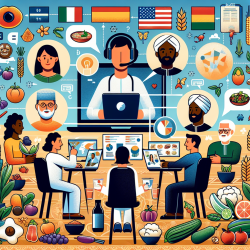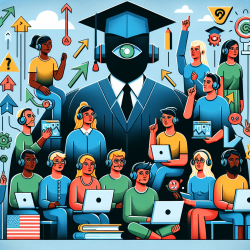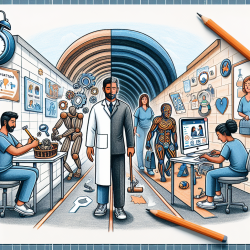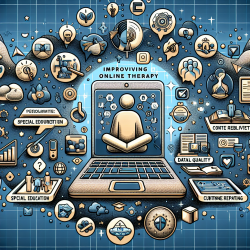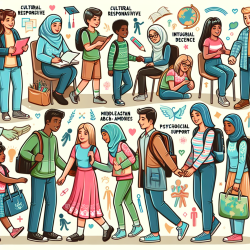Introduction
In the dynamic field of speech-language pathology, practitioners are constantly seeking ways to enhance their skills and improve outcomes for children. An intriguing research article, "Comparison of college students' behavior toward nutrition information communication between Korea and the US," offers valuable insights that can be applied to our field. This study provides a comparative analysis of how college students in Korea and the US engage with nutrition information, highlighting the role of cultural context in communication behaviors.
Key Findings and Their Implications
The study reveals significant differences in the use of communication channels for acquiring nutrition information. American students tend to rely more on social media and YouTube, while Korean students prefer internet posts. This suggests that cultural preferences influence the choice of communication platforms, a factor that can be crucial when designing interventions for diverse populations.
Moreover, the research highlights the importance of knowledge self-efficacy and transactive memory capability in knowledge-sharing behavior. American students demonstrated higher levels of these traits compared to their Korean counterparts. This finding underscores the need for tailored strategies to enhance these capabilities, particularly in contexts where they may be lacking.
Practical Applications for Practitioners
For speech-language pathologists, understanding these cultural nuances can inform the development of more effective communication strategies. Here are some actionable steps practitioners can take:
- Leverage Preferred Channels: When working with clients from diverse backgrounds, consider their preferred communication platforms. For instance, incorporating social media and video content may be more effective with American audiences, while blogs and written content might resonate better with Korean clients.
- Enhance Knowledge Self-Efficacy: Develop programs that boost clients' confidence in their ability to share and apply knowledge. This can be achieved through workshops, role-playing exercises, and providing resources that empower clients to become active participants in their learning journey.
- Foster Transactive Memory Capability: Encourage collaborative learning environments where clients can share knowledge and learn from each other. This approach not only enhances memory capabilities but also builds a supportive community that values knowledge exchange.
Encouraging Further Research
While this study provides valuable insights, it also opens avenues for further research. Practitioners are encouraged to explore how these findings can be applied in different contexts, such as within various age groups or educational settings. Additionally, investigating the impact of these communication behaviors on therapy outcomes can provide a deeper understanding of their practical implications.
To read the original research paper, please follow this link: Comparison of college students' behavior toward nutrition information communication between Korea and the US.
